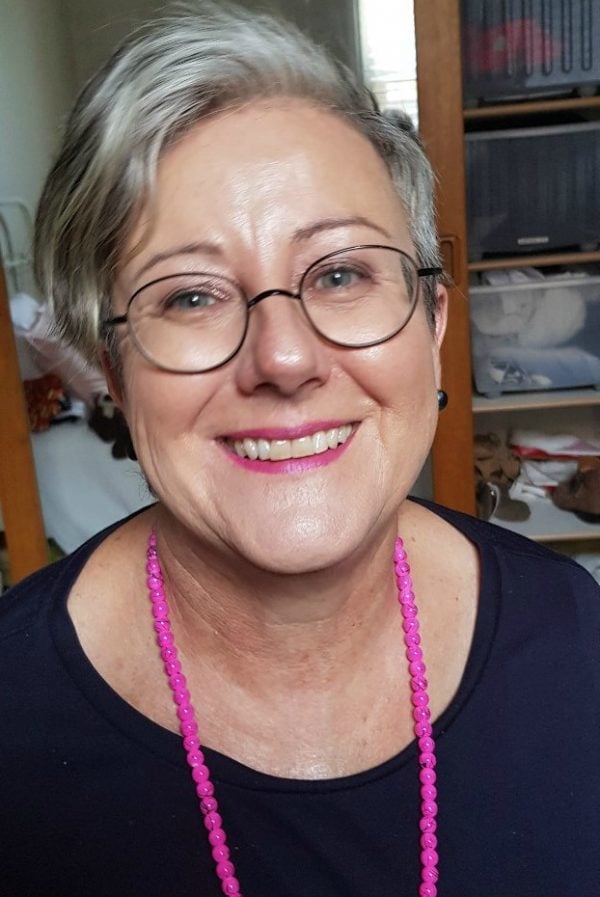
Anna Guthleben has always been a night owl.
She tends to have a bit of a slump during the day, but perks right up at about 10:30pm.
This was fine in her 30s, when she was still studying as a mature-aged student, but when she entered her 40s and started working in “real jobs” that required a bit more routine, she realised her sleep patterns were a problem.
“It really came into my consciousness then that I couldn’t cope,” the now 57-year-old told Mamamia. “I don’t get to sleep easily. I never go upstairs to go to bed and think I am going to sleep. That’s not what happens for me.”
In 2017, Anna stumbled on an advertisement on Facebook for a sleep experiment at Flinders University.
WATCH: The professor in charge of the sleep trial on SBS. Post continues after video.
They were looking for participants with chronic insomnia, particularly those who have trouble falling asleep. She thought she would be the perfect candidate.
Little did Anna know that by agreeing to the Intensive Sleep Retraining (ISR) treatment, she was essentially signing up for sleep torture.
With an iPhone strapped to her arm and an earpiece in place, Anna settled in for the ‘experimental’ night sleep.
Every few minutes, the phone made a very gentle ‘ping’ noise at a particular note, and she’d wiggle her arm to let the phone know she was awake.





























































































